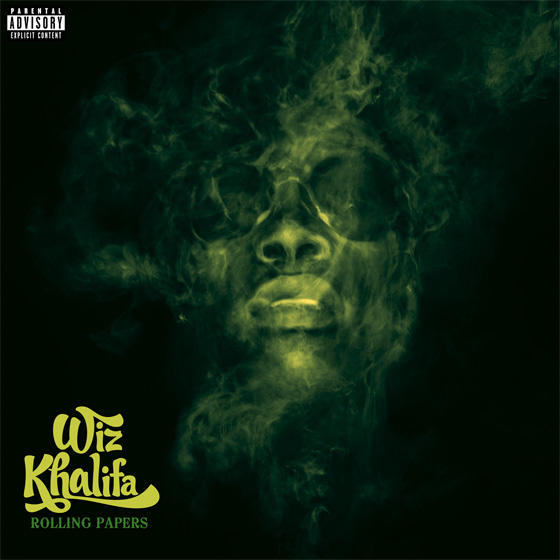The story is a simple one. A young, relatively charismatic rapper, following two somewhat overlooked independently released albums, manages to get some buzz. Kush & Orange Juice starts trending, and Wiz Khalifa is headed for the big leagues. Thing is, Orange Juice’s acclaim was rooted in the enjoyable simplicity offered, and not so much around any exciting talent the MC offered.
In a climate in which the likes of So Far Gone is a viable buzzstarter — not to mention somehow acclaim worthy — Wiz was pretty much guaranteed a shot. Recording and rolling around like besties with Snoop Dogg did him no harm either (and scored him a spot on the elder rapper’s Doggumentary). That spot, “The Weed is Mine,” tells you just about all you need to know for this one: Wiz Khalifa is a pretty cool guy, but — in case you doubted it — faces real, every day problems, and promptly smokes them all away, probably gets the munchies, and then calls girls over.
With a collection of songs largely indistinguishable from one another, this album exemplifies the struggle up-and-coming rappers currently face. All it takes for a label to get behind an MC is that first hit (in this case, “Black and Yellow”). Then, the guy will be given so much press and hype that you’d think they’re the next Biggie. Time was, an artist had to craft that sort of reputation, but in an era of online mixtapes, the gloss is easy to create. Think of the grand nature of Drake’s “Light Up”: the kid wasn’t even through recording his debut and Shawn God damn Carter was calling him the future. Hate ’em or love ’em, you have to feel bad for them; you can’t create your own space with people constantly filling it out for you.
Wiz Khalifa may have been cursed worst of all — with Snoop all but declaring him his own second coming and his single becoming both a remix favorite and grand sports anthem, the young rapper suddenly went from upstart to a “real player” in the industry. Simple fact is, the kid’s not cut out for it. If you’ve heard the singles put out for this one, then you’ve heard the best Rolling Papers has to offer. Considering the limiting nature of today’s radio on hip hop, this is particularly disheartening. The album’s best moments derive entirely from production, and its two best verses are delivered by its only two guests. Did the pressure get to Khalifa? In terms of sound, it certainly seems that way: prior collaborators have vanished from the production credits, replaced by the likes of Stargate and Jim Jonsin. In fact, the former may just be the biggest stars found here, as the Norwegian duo offer up most of the best moments to be found.
Conceptually, the furthest this reaches is Wiz’s perspective on money – spend it, because you can’t when you’re dead, reaching over into the “live for the moment, yay!” party atmosphere that has allowed Wiz to be successful. Which is also what killed this album out of the gate: Khalifa is so busy marketing along the lines he’s drawn (or had drawn for him) that he never stops to think, “Damn, how’d I get here?” Domo Genesis can’t even gripe — Wiz must never have heard his Rolling Papers, he would have been too embarrassed to ever have put this out. Maybe a moment to take it all in would have benefitted him, who knows. What we do know is that this record continues the downward spiral currently trapping this newest generation of MCs: a celebration of mediocrity. No one wins.

